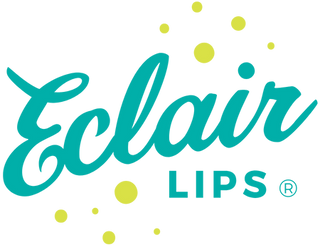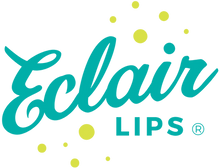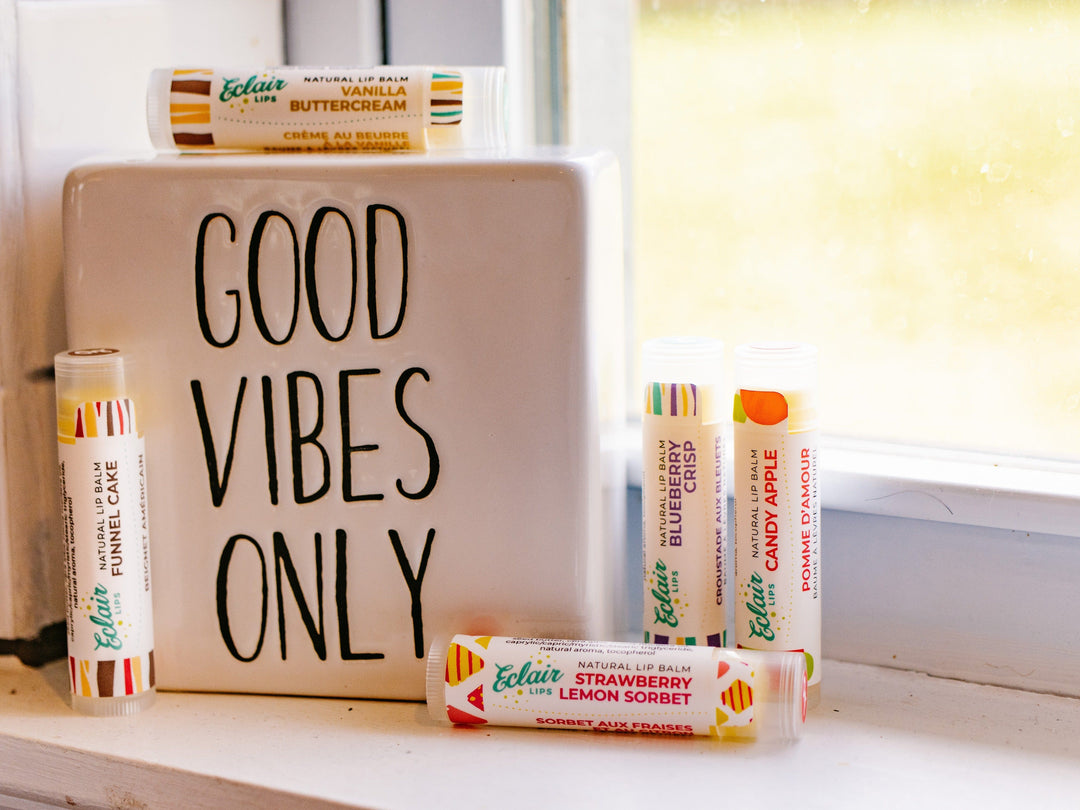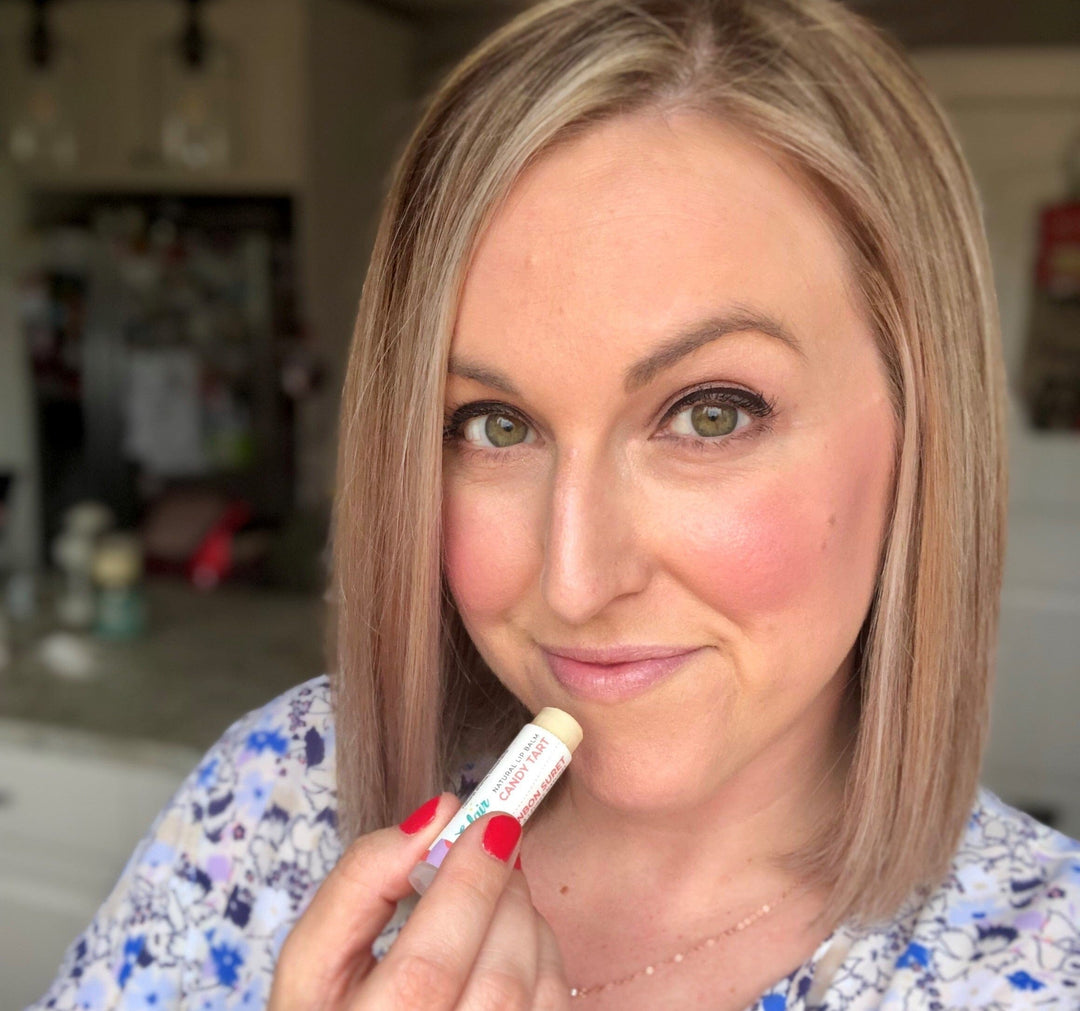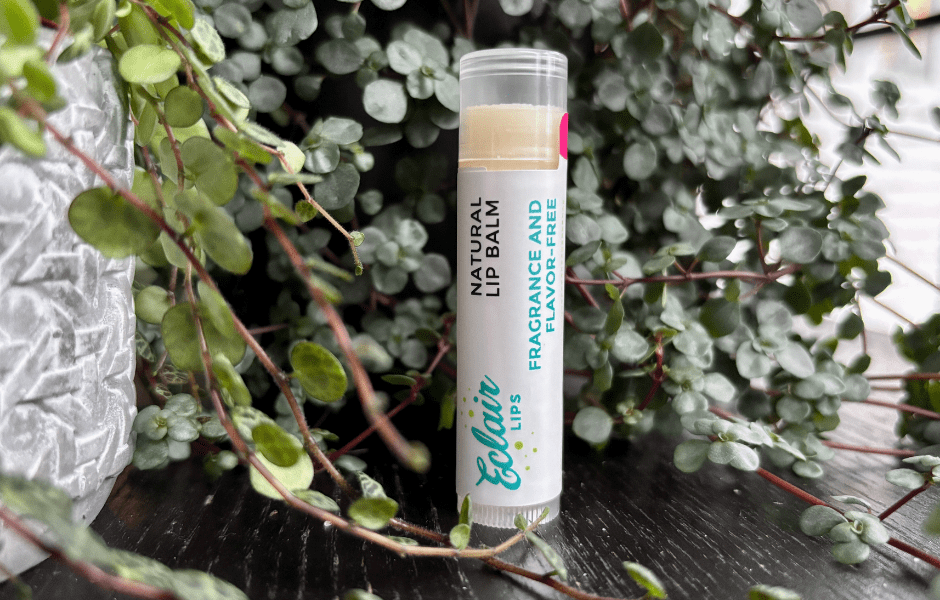Best Lip Balm for Dark Lips: Protection & Pigmented Tints That Work
Finding the Right Lip Balm for Darker Lip Pigmentation and Sun-Damaged Lips
When you search for the best lip balm for dark lips, you're probably dealing with one of two things. Maybe your lips are naturally darker than your skin tone, and you want a tinted balm that actually shows up. Or maybe you've noticed your lips getting darker from sun exposure or irritation, and you're looking for something protective.
Both situations need different solutions, and we're going to cover them both.
Your lips can darken for several reasons. Some people naturally have more melanin in their lips, which is completely normal and healthy. Others develop darker pigmentation over time from sun damage, smoking, irritation from certain products, or even hormonal changes. Understanding which category you fall into helps you choose the right lip balm for your specific needs.
The good news is that the right lip balm can both protect your lips from further darkening and provide beautiful colour that complements deeper lip tones. We'll walk through the science behind lip pigmentation, what ingredients actually help, and which products deliver real results without making promises they can't keep.

Quick Takeaway
- Dark lips happen naturally (melanin) or develop from sun damage and irritation
- SPF protection is crucial for preventing sun-induced darkening
- Tinted balms need enough pigment to show up on deeper lip tones
- Natural protective ingredients like cocoa butter and beeswax create barriers against environmental damage
Contents
Understanding Why Lips Get Darker
Lip pigmentation works differently than you might expect. According to dermatological research, lips have a thin stratum corneum and lack the same protective melanin distribution as regular skin. This makes them more vulnerable to UV damage, which can trigger increased melanin production over time.
If your lips are naturally darker, that's just your body's melanin doing its job. Melanin is the pigment that gives skin, hair, and lips their colour, and some people naturally produce more of it in their lip tissue.
This is especially common in people with deeper skin tones, and there's absolutely nothing wrong with it.
But lips can also darken from external factors. Sun exposure is a major culprit because lips don't have much natural UV protection. When UV rays hit your lips repeatedly without protection, your body responds by producing more melanin in that area. This is why people who spend lots of time outdoors without lip protection often notice their lips getting darker over the years.
Other causes include smoking (which restricts blood flow and causes oxidative damage), irritation from certain lip products, chronic licking or biting, and hormonal changes during pregnancy. Sometimes medications or underlying health conditions can contribute too. If your lips have darkened suddenly or dramatically, it's worth checking with a healthcare provider to rule out anything serious.
What Makes a Good Protective Lip Balm
The best lip balm for dark lips needs to do two main things: protect against further darkening and provide moisture without irritation. Protection means creating a physical barrier against environmental damage, especially UV rays.
Research on skin function shows that occlusive ingredients form a protective layer that prevents moisture loss and shields lips from environmental stressors. For lip balms, this means ingredients like beeswax, cocoa butter, and coconut oil. These create a breathable barrier that keeps moisture in and irritants out.
Beeswax is particularly effective because it forms a protective seal without completely blocking your lips from breathing. It's firm enough to create a substantial barrier but flexible enough to move with your lips as you talk and eat. Cocoa butter adds extra moisturizing properties while reinforcing that protective layer.
For preventing sun-induced darkening, SPF is non-negotiable. Dermatology guidelines emphasize that lips need just as much sun protection as your face, maybe even more because of their thin protective layer. The problem is that many SPF lip balms taste terrible or feel heavy and waxy.
If you're specifically trying to prevent further darkening from sun damage, look for a balm with at least SPF 15 for daily use, and SPF 30 if you're spending extended time outdoors. While Eclair Lips doesn't currently offer SPF products, you can layer an SPF lip balm under a protective balm for combined benefits.
Tinted Balms That Actually Show Up
Here's where things get tricky. Most tinted lip balms are formulated with lighter skin tones in mind, which means they often look barely-there or weirdly ashy on deeper lip pigmentation. The best lip balm for dark lips by dermatologist recommendation focuses on products with enough pigment density to actually make a difference.
A good tinted balm for darker lips needs deeper, richer pigments. Light pinks and peaches might work beautifully on fair lips but can look chalky or disappear entirely on deeper tones. Instead, look for berry shades, deep mauves, rich browns, or bold reds that have enough colour intensity to show up.
The texture matters too. Sheer tints need to be layered multiple times to be visible on darker lips, which can feel wasteful and frustrating. A balm with more concentrated pigment gives you colour payoff in one or two swipes while still maintaining that comfortable, non-sticky balm texture.

Ingredients That Protect Without Irritating
When you're choosing a protective balm, the ingredient list matters more than you might think. Some ingredients that work fine for occasional use can actually cause irritation with repeated application, and that irritation can contribute to darkening over time.
Studies on lip care ingredients demonstrate that simple, minimal formulations often perform better than complex ones loaded with active ingredients. For protective balms, this means sticking to proven moisturizers and occlusives: cocoa butter, beeswax, coconut oil, and similar natural fats.
Avoid products with potential irritants if your lips are prone to darkening from irritation. This includes strong flavouring agents, certain essential oils (especially citrus and cinnamon), and synthetic fragrances in high concentrations. Some people also react to phenol or menthol, which create that tingling sensation in some lip products.
For sensitive lips or lips that darken easily from irritation, a fragrance-free option removes the most common irritant from the equation entirely. This straightforward formula focuses on protection and moisture without any added scent or flavour compounds that might cause problems.
Vitamin E appears in many lip balms as an antioxidant, and research supports its protective benefits against oxidative damage. It won't reverse existing pigmentation, but it can help prevent further damage from environmental stressors.
Sun Protection Strategies That Actually Work
If sun damage is causing your lips to darken, prevention is your best strategy. Once hyperpigmentation develops, it can take months to fade even with consistent protection, and it may not fade completely. That's why dermatologists emphasize that protecting your lips from UV damage in the first place is easier than trying to reverse it later.
The most effective approach combines three strategies: physical sun protection, barrier ingredients, and consistent reapplication. Physical sun protection means wearing a hat with a brim when you're outdoors for extended periods. It sounds old-fashioned, but it works. A wide-brimmed hat shades your entire face including your lips.
Barrier ingredients create that protective seal we talked about earlier. A thick, occlusive SPF balm applied before sun exposure gives UV rays one more obstacle to get through before reaching your lip tissue.
Reapplication is where most people fall short. Dermatology guidelines suggest reapplying lip protection every two hours when you're outdoors, and more frequently if you're eating, drinking, or swimming. This is especially important in winter, when sun reflecting off snow can be more intense than summer sun.
The Role of Exfoliation in Evening Tone
Gentle exfoliation can help with sun-damaged lips by removing the outer layer of darkened skin cells, but this needs to be approached carefully. Over-exfoliating can cause more irritation and potentially more darkening, so the key word here is gentle.
Research on exfoliation shows that mechanical exfoliation with small particles works better for lips than chemical exfoliants, which can be too harsh for the delicate lip tissue. A sugar-based lip scrub used once or twice a week can gradually improve the appearance of darkened lips by promoting cell turnover.
After exfoliating, your lips are more vulnerable to environmental damage, so following up with a protective balm is crucial. This is actually a good time to apply a thicker overnight balm because your lips will absorb moisture more effectively right after exfoliation.
Don't expect dramatic results from exfoliation alone. It can help gradually even out minor darkening, but it's not going to change your natural lip colour or reverse years of sun damage in a few weeks. Think of it as part of a long-term maintenance routine rather than a quick fix.
Recommendations for Different Needs
| Your Situation | What to Look For | Recommended Approach |
|---|---|---|
| Naturally darker lips, want tinted colour | Deep pigmented shades (berry, mauve, brown, red tones), creamy texture | Apple Butter or Black Cherry Granita tinted balms for rich colour that shows up on deeper tones |
| Sun-damaged darkening | SPF 30+, occlusive barrier ingredients, antioxidants | Layer SPF balm under protective balm, reapply every 2 hours outdoors, wear hat for extended sun exposure |
| Irritation-prone lips that darken | Fragrance-free, minimal ingredients, no menthol/phenol | Switch to fragrance-free formula, avoid flavoured balms, use gentle exfoliation maximum twice weekly |
| Both natural pigmentation + protection needs | Buildable tinted shade, protective ingredients, SPF compatibility | Use tinted balm for colour, add SPF layer when needed, maintain consistent moisture |

Products That Deliver Real Results
For naturally darker lips that need tinted colour, the tinted lip balm collection offers shades with enough pigment to actually show up. The Apple Butter provides a warm brown that complements deeper skin tones beautifully, while Black Cherry Granita adds a berry tone that reads as a real colour rather than just a hint of tint.
If you're dealing with sun-induced darkening and need maximum protection, start with a fragrance-free base that won't cause any irritation. Layer your SPF product over this, then seal everything in with another layer of the fragrance-free balm. This sandwich method gives you both sun protection and moisture retention.
For combination needs where you want both colour and protection, try the Discovery Bundle to test different formulas and find what works for your specific lip chemistry. What works for one person might not work for another, especially when you're dealing with pigmentation concerns.
What Won't Work (And Why)
Let's be realistic about what lip balm can and cannot do for darker lips. No lip balm is going to significantly lighten your natural lip colour, and honestly, that shouldn't be the goal anyway. Your natural pigmentation is not a problem that needs fixing.
Some products claim to "brighten" or "lighten" dark lips, but these claims need scrutiny. If a product contains ingredients that actually lighten skin, it may not be safe for the delicate lip tissue. And if it doesn't contain active lightening ingredients, then it's probably just providing moisture and protection, which makes darkening less noticeable but doesn't actually change your pigmentation.
For sun-induced darkening, time and protection are your main tools. With consistent SPF use and barrier protection, darkened areas may gradually fade over several months as old skin cells shed and new, protected cells take their place. But this requires patience and consistent daily protection.
Expensive "treatment" balms with exotic ingredients probably won't outperform a simple protective balm with good occlusive ingredients. The research on lip care formulations shows that basic moisturizing and protective ingredients deliver the same results as complex formulas at a fraction of the cost.

Maintaining Healthy Lip Colour Long-Term
The best approach to dark lips combines daily protection, gentle care, and realistic expectations. If your lips are naturally darker, embrace that pigmentation and find tinted shades that make you feel confident rather than trying to change your natural colouring.
For sun-induced darkening, make SPF protection as automatic as brushing your teeth. Keep an SPF balm in your car, your bag, your desk drawer, and anywhere else you spend time. The more accessible protection is, the more likely you are to actually use it consistently.
Stay hydrated from the inside too. Dermatological research shows that overall hydration status affects skin barrier function everywhere on your body, including your lips. Drinking enough water won't reverse darkening, but it helps maintain healthy lip tissue that's more resilient against damage.
FAQ About Dark Lips and Lip Balm
Can lip balm make my naturally dark lips lighter?
No, and that's actually a good thing. Your natural lip pigmentation is determined by melanin production, and standard lip balm ingredients don't (and shouldn't) affect this. What good lip balm does is protect your lips and provide moisture so they look healthy and vibrant rather than dry or dull.
How long does it take for sun-damaged lips to lighten?
With consistent SPF protection and barrier ingredients, you might see gradual improvement over 3-6 months as old skin cells shed and new, protected cells replace them. But this requires daily sun protection and won't necessarily return your lips to their original shade.
Do I really need SPF on my lips every day?
If you're concerned about darkening from sun damage, yes. Dermatology guidelines emphasize that lips need UV protection just like your face. Even on cloudy days or during winter, UV rays can penetrate and cause cumulative damage over time.
Are there any ingredients I should avoid if my lips darken easily?
Strong irritants can contribute to darkening in some people. This includes high concentrations of menthol, phenol, certain essential oils (especially cinnamon and citrus), and synthetic fragrances. If your lips are sensitive, a fragrance-free formula removes the most common irritants.
Will exfoliating my lips make them lighter?
Gentle exfoliation can help with sun-induced darkening by removing the outer layer of pigmented cells, but it won't change your natural lip colour. Over-exfoliating can actually cause irritation that leads to more darkening, so limit scrubs to once or twice weekly maximum.
What's the difference between naturally dark lips and hyperpigmentation?
Naturally dark lips are part of your normal pigmentation pattern and have been consistent throughout your life. Hyperpigmentation develops over time from sun damage, irritation, or other external factors, so you'll notice your lips gradually getting darker than they used to be.
Can smoking make my lips darker?
Yes, smoking restricts blood flow and causes oxidative damage that can lead to darkening over time. It also dries out lips and damages the delicate tissue. Quitting smoking can help prevent further darkening and improve overall lip health.
Do tinted lip balms work on very dark lips?
Most drugstore tinted balms are too sheer to show up on deeper lip pigmentation. Look for products specifically formulated with deeper, more saturated pigments in berry, mauve, brown, or bold red shades. These have enough colour density to actually be visible on darker lips.
Finding What Works for You
The best lip balm for dark lips depends entirely on your specific situation and goals. If you're working with naturally darker lips and want colour, focus on finding richly pigmented tints that show up beautifully on your natural tone. If sun damage is your concern, make SPF protection and barrier ingredients your priority.
Either way, consistent use matters more than finding the "perfect" product. A simple protective balm used every day will deliver better results than an expensive treatment balm that sits forgotten in your bag. Choose something that feels good enough to use regularly, and stick with it.
More Lip Balm Guides
- The Best Lip Balm for Pigmented Lips
- Best Lip Balm for Sensitive Lips
- Best Unscented Lip Balm
- What Is Tinted Lip Balm?
- How to Choose Natural Lip Balm
- Best Lip Balm for Winter
- Best Hydrating Lip Balm
- Best Ingredients for Lip Balm
- Best Shea Butter Lip Balm
- How to Use Lip Scrub
Explore Our Online Lip Balm Shop
At Eclair Lips, we believe the best lip balm is the one you love to use every day. Every balm is handmade in small batches with natural ingredients, playful dessert-inspired flavours, and a texture we obsessed over until it felt just right. We ship anywhere in Canada and the US, so whether you are in Toronto, Halifax, Las Vegas, or Chicago, you can stock up on your favourite lip balm Canada style, right from your couch.
In our shop, you will find tinted lip balm for a hint of colour, fragrance free balm if your lips are on the sensitive side, gentle lip scrubs to keep everything smooth, and even lip balm for kids when you want something safe and fun to share. Looking for variety? Try a lip balm set to explore new flavoured lip balm favourites or to give as a gift.
Our brand is built on honesty, humour, and heart, and that means no scare tactics, no overblown claims, just lip care that feels good and makes you smile.
Take a peek at our collections here: https://eclairlips.com.
Disclaimer: The information in this post is meant to be helpful, and while we love dorking out about lip balm, it isn't medical advice. Everyone's needs are different, so if you have concerns about allergies, sensitivities, pregnancy, or a medical condition, please check with a healthcare professional before trying new products.
